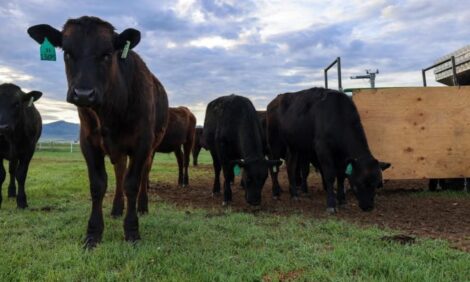



Planting For Hope: September Newsletter
Apollo Saku is a farmer, agricultural academic and project leader for Planting for Hope Uganda, a sustainable wealth creation programme aimed at empowering rural communities through farming and cooperative schemes.
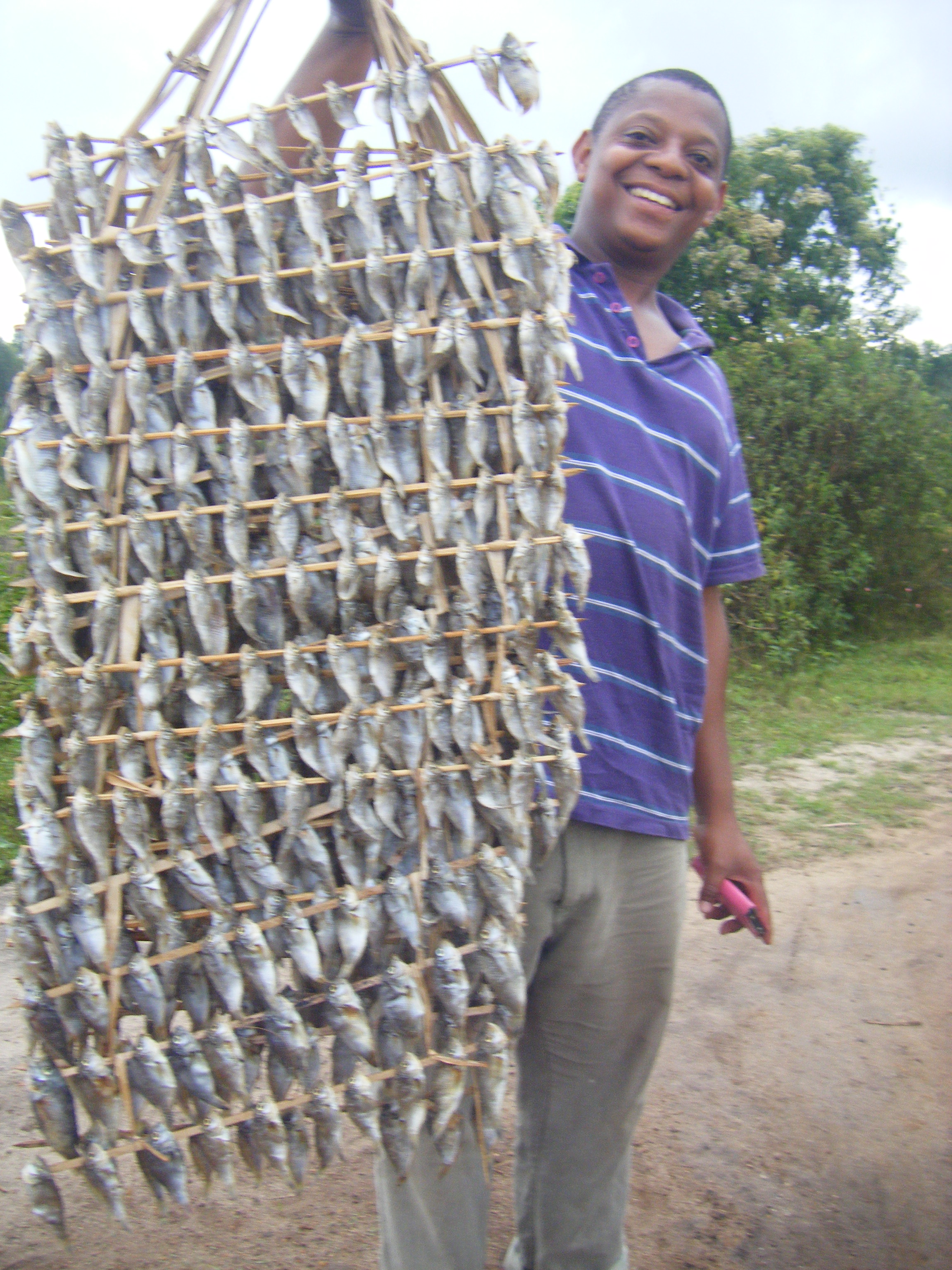
Along with the Planting for Hope team, Apollo is teaching the Kititi and Bukunda people to farm sustainably and market produce and crafts through cooperatives.
The land currently under his stewardship lies to the west of Lake Victoria in the Kyanamukaaka region in the Masaka District of south west Uganda.
Here is a taste of how he is getting on…
Farm Overview
Apollo is currently expanding his pig unit. This is so more excrement and urine can be taken onto the fields to fertilise the arable land. Apollo explains that this is key to success.
The farm enterprises co-exist and benefit alongside each other. The arable land grows fodder crops for the pigs which then produce fertiliser to nourish the next year's harvest.
Eyes are on the weather at the moment as the second rotation of crops become established for the year.
“We are currently experiencing some good rains,” says Apollo. “This will go on until November. I am glad to say that we have managed to clear the land at Kititi, we have already procured some seeds maize, bean and other vegetable seeds.”
“We deeply appreciate the donations from Aspire Business Partnership LLP (UK) through Deb Nolan. This came at a good time for the farm, the season was ready to use the funds to clear some land and buy some seeds.”
Apollo and the villagers prepare land manually, there is no mechanization. First of all a ‘slash and burn’ clearance method is used to clear land for crop growing or fodder for livestock.
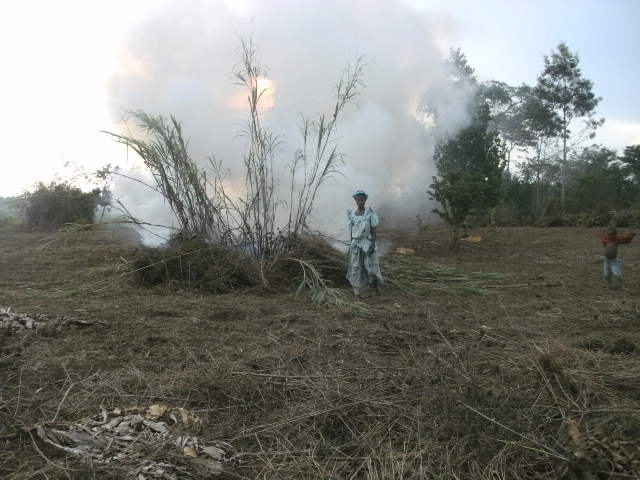
Some land still under clearance - Sylvia, of the Kititi cooperative using the 'slashing and burning' technique.
Basic hoeing has been used this August and into September to till the land. Holes are then dug at least three feet apart in which beans or maize is planted.
Vegetable growing also extends to cabbages, onions, carrots and green pepper. These are grown in ‘double dug beds’.
The Ugandan climate has to deliver the right weather for good yields and crop establishment. Apollo aims for two plantings each year.
“We are now past our second planting opportunity of the year,” explains Apollo. “We have worked hard and completed plantings early so that as the rains come to an end our plants are already 3 feet (0.91 cms) tall.”
“Early planting is what we go for. The rains will continue till early November, though the rain becomes less, it may rain for 30 minutes and then soak away fast.”
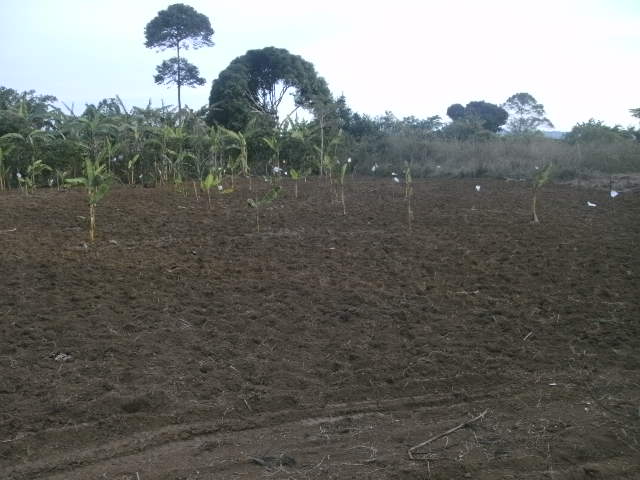
Some of the land at Kititi which has been planted with beans and maize (intercropping).
Farm Implements
This month, Apollo's farm budgets are factoring in new equipment.
Apollo is in need of implements to work land and control weeds, as well items to help the livestock enterprises.
A watering can costs 30,000 in Ugandan shillings (UGX), equivalent to £7 in the UK.
One wheelbarrow is needed but this is 120,000 UGX, equivalent to £7 in the UK.
A Nap sack sprayer is also on the wish list. This will distribute herbicide. Apollo says this is 150,000 UGX - about £38.
Pigs
The farm’s pigs are progressing well with sows expected to farrow shortly. Between eight and ten piglets can be expected from the pigs.
Pork is seldom eaten by Ugandan peasant farmers. Instead, people have to wait for Easter or Christmas to slaughter an animal for a feast. European breeds are crossbred as the native breeds are hardy but slow growing.
Commercial pig farmers buy expensive maize bran with additives but Apollo explains that peasant farmers cannot afford this, instead growing native forage crops on the farm.
"Feeding varies a great deal here," explains Apollo. "Commercial pig feed includes fish meal, cottonseed cake, lime, sunflower and premix.
"However, peasant farmers are restricted to fattening pigs on food left overs, weeds and washing water."
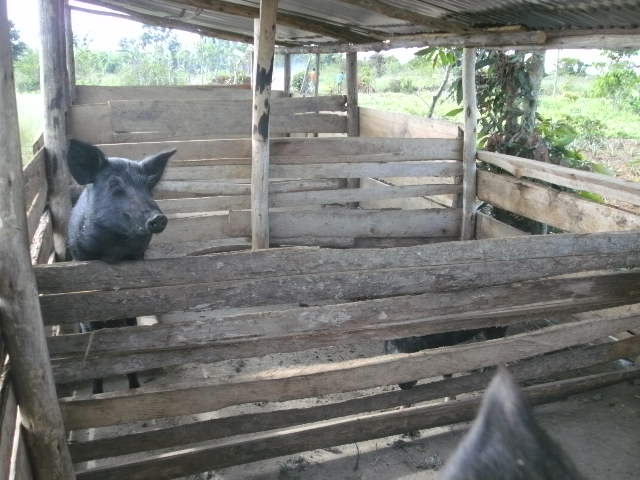
Pig units at the Planting for Hope farm in Masaka
Medicine and feed has been bought in. Apollo says this is thanks to donations from the Aspire Business Partnership LLP, based in the UK.
Building up pig numbers is important to the programme. Villagers can get a pair of pigs if a boar and a gilt can be kept.
Apollo describes pork as the main meat in the area and markets are ready to accept their pork all over the Masaka district. However, current meat sales are lower, due to the pig retention programme.
To find out more about Apollo and his farm in Uganda click here or contact Kate Oakley at [email protected]

